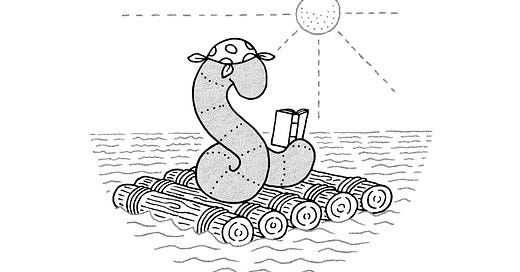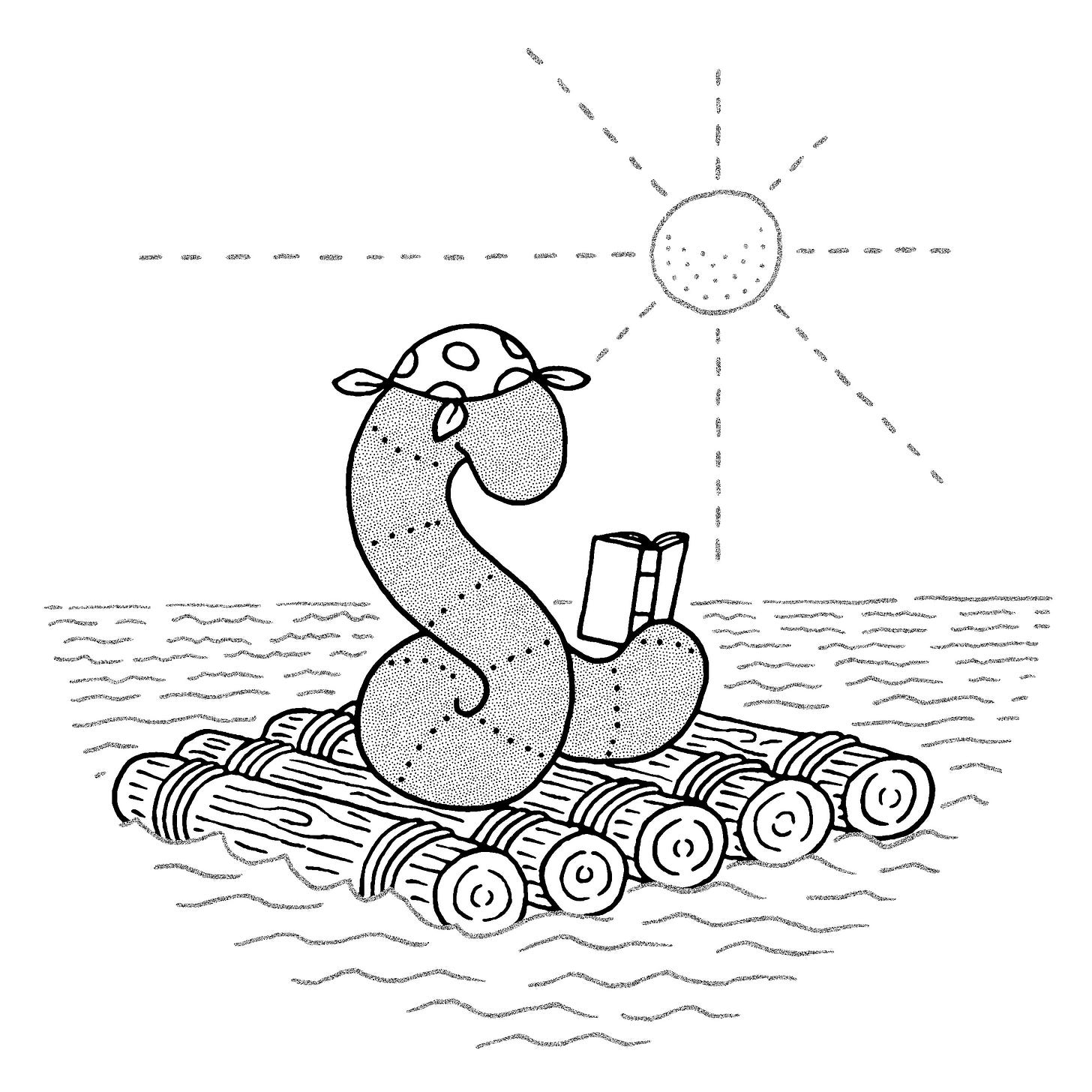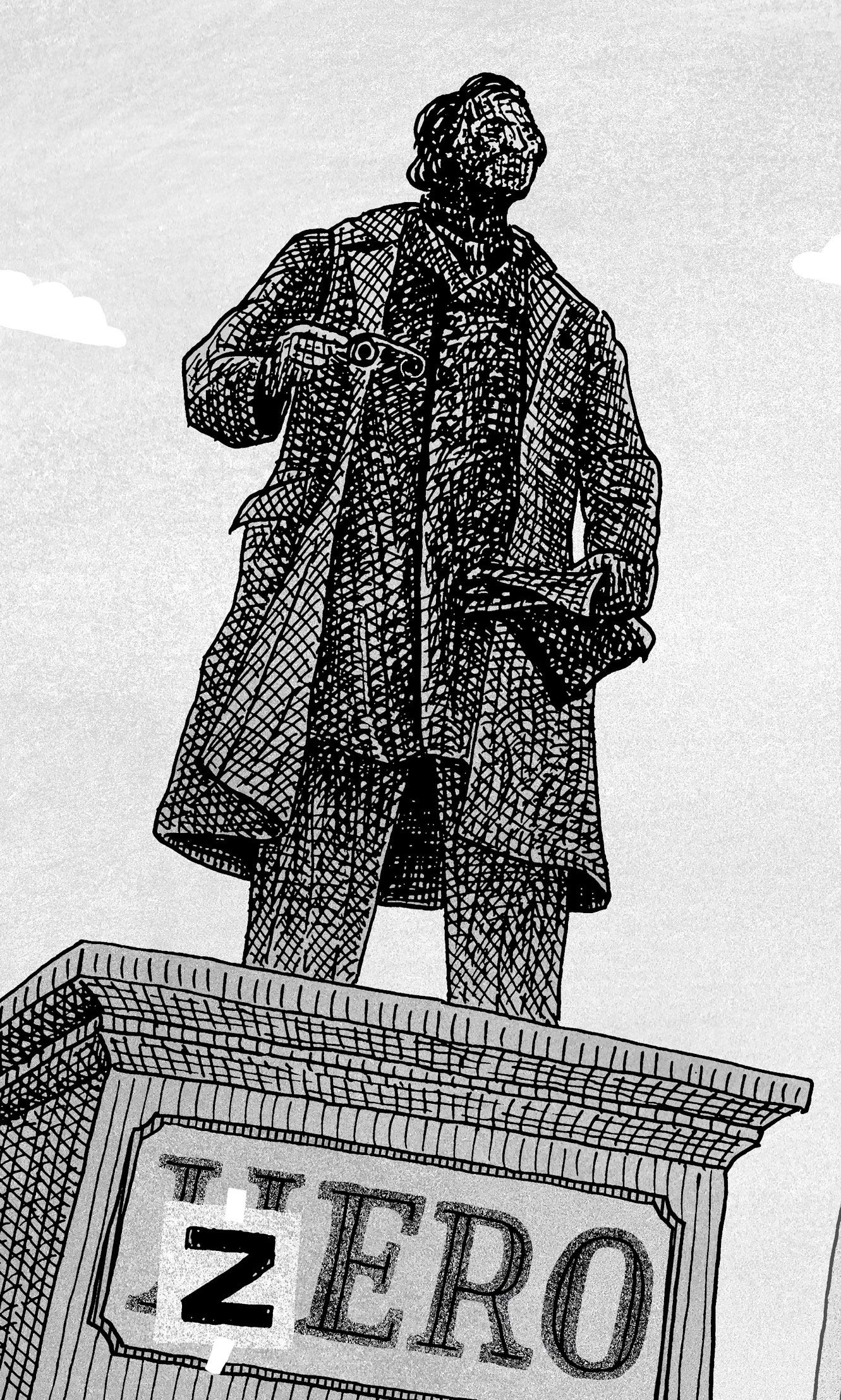Bookworm, no. 100
Jadine Ngan reviews Adnan Khan’s “The Hypebeast.” Brad Dunne on Christopher Patrick Aylward’s “Beothuk.” Canada’s best literary magazine. Poetry by Laurie Koensgen. Inside the June issue.
This Is the CRA Calling
The Hypebeast
Adnan Khan
Dundurn Press
408 pages, softcover and ebook
We live in the golden age of fraud; a web of professional con artists has spread as the cost of living has soared. Everyone wants something to believe in, and anyone can be talked down the drain. With The Hypebeast, the journalist, filmmaker, and novelist Adnan Khan plunges into that shadowy world.
Hamid Shaikh, an immigrant from Bombay, can’t find an honest job in Toronto that offers more than scraps. So he milks the tax-scam beat, cold-calling newcomers to demand that they pay up for grave errors on their returns. His philosophy? “If people want to part with their money they should be allowed to.” But he wants more. To make a quick buck, he takes an unusual gig: steal a famous black jaguar, then deposit it on the sprawling estate of an aspiring crime lord. Soon after, Hamid’s girlfriend disappears. The trail leads to Abdul Mohammad, a former detainee at Guantanamo Bay who fronts a controversial mosque-slash-rehab-centre. There, a life-changing swindle awaits—as does the promise of violence.
On the surface, the high-intensity plot swirls around money. Beneath that, it’s about how the past shapes our longings and beliefs, how they sometimes blind us to danger. Hamid knows what he’s running from, and his rapid, rhythmic narration gives a window into a driven if directionless psyche. Around him, the characters brim with vice and neuroticism, each one greedy for something. At the book’s core lie the questions: What stories do we tell ourselves to justify our desires? And if we try to close our hands around too much, what will be left when we open them?
—Jadine Ngan
Not Quite
Beothuk: How Story Made a People (Almost) Disappear
Christopher Patrick Aylward
McGill-Queen’s University Press
312 pages, hardcover and ebook
Newfoundland and Labrador’s collective consciousness has fixated on the tragedy of the Beothuk people since Shanawdithit, the last known member, died in 1829. The prevailing narrative proposes that the group of hunter-gatherers, numbering roughly 1,000 at the time of first contact in the sixteenth century, were self-isolating xenophobes who mostly died out through violent conflicts with Europeans and Mi’kmaq from the mainland. Various theories challenge or support this thesis, but the common denominator has always been that they became extinct.
In Beothuk, Christopher Patrick Aylward argues that their “extinction is a reductive oversimplification”—a false trope that provides governments with an undeserved catharsis for a difficult past, as well as a convenient solution for potential land settlements. The University of Toronto associate professor probes influential yet biased texts, including James P. Howley’s The Beothucks or Red Indians, from 1915, which relied almost exclusively on European accounts. To remedy this imbalance, Aylward consolidates fragmented Indigenous sources, including Inuit and Mi’kmaq oral histories, with archaeological and genealogical breakthroughs. He builds a compelling case: while the Beothuk are culturally and linguistically extinct, their genes have survived in other populations through intermarriage.
The book proves most successful when Aylward explores his ideas with accessible language. The text falters, however, when he shoehorns in clumsy academic jargon, such as “homodiegetic narrator.” At best, these terms add little to the argument and, at worst, they detract from it. Despite some unevenness, Beothuk is thoroughly researched, and it should be essential reading on the subject.
—Brad Dunne
Bravo!
At Friday’s National Magazine Awards in Toronto, the Literary Review of Canada was honoured as the best literary magazine in the country. The very next day, we sent our July/August issue to the printer with some extra pep in our step.
If you’re not already a subscriber, it’s not too late to become one—and to receive the latest in our signature brand of reviews and illustration.
Poet’s Corner
Remember
You are the dorsal fin
collapsing in
captivity.
I am the hoarfrost,
colourless bloom.
Remember, we were firstling
thirsting lovers—
summer, the bleachers,
pinky swearing in the rain.
—Laurie Koensgen’s new chapbook is this clingstone love. Find more of her work in a physical copy of the latest Literary Review of Canada, on newsstands now.
Inside the June Issue
“Modern critics make John A. Macdonald uniquely responsible for dispossessing, marginalizing, and shattering many Indigenous communities. In response, the author shows that Macdonald was but a small part of a massive westward movement by thousands of settlers, who built Canada while devastating existing communities.” Alan Taylor on Patrice Dutil’s Sir John A. Macdonald & the Apocalyptic Year 1885.
Clarissa Hurley reviews Hello, the latest fiction from David Carpenter.
“Like most people who think they’ve read this classic of science fiction but haven’t, I assumed the book’s title referred to the depth to which Captain Nemo’s submarine could dive. Not really a possibility, not even in a speculative tale. A league is approximately three nautical miles. Do the math.” David Macfarlane finally gets around to Jules Verne’s Twenty Thousand Leagues under the Sea.
And much more!









Congrats on the 100th Bookworm!!!
Bravo! Congratulations on your recognition.